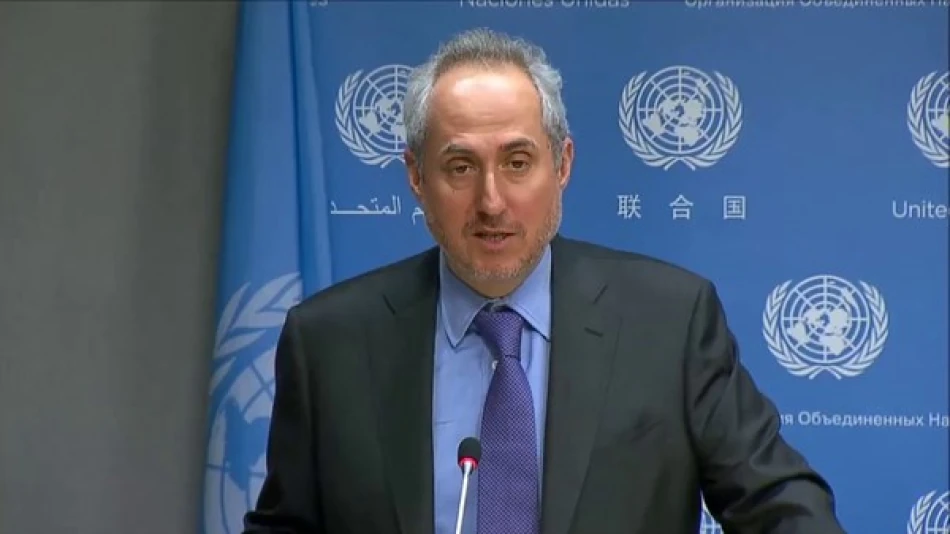
UN Endorses Quartet's Statement on Restoring Peace and Security in Sudan
UN Endorses Quad Initiative for Sudan as Regional Powers Unite Against Military Solution
The United Nations has thrown its weight behind a new diplomatic initiative led by the UAE, Egypt, Saudi Arabia, and the United States to restore peace in Sudan, marking a significant shift toward coordinated international pressure on warring factions. The endorsement signals growing regional consensus that Sudan's devastating conflict requires immediate multilateral intervention rather than continued military escalation.
Diplomatic Momentum Builds Around Quad Framework
UN spokesperson Stéphane Dujarric emphasized the organization's recognition of the Quad initiative's importance, stating that the UN "remains committed to constructive engagement with any initiative aimed at ending the devastating war in Sudan." This backing represents a crucial diplomatic victory for the four-nation coalition, lending international legitimacy to their peace efforts.
The Quad's composition reflects both regional influence and global reach. The UAE and Saudi Arabia bring significant economic leverage and regional diplomatic networks, while Egypt's shared border with Sudan creates direct security interests. U.S. involvement adds international weight and potential sanctions enforcement capabilities.
No Military Solution: UN Reinforces Diplomatic Path
Dujarric reiterated the UN's firm position that no military solution exists for Sudan's conflict, a stance that directly challenges both the Sudanese Armed Forces and the paramilitary Rapid Support Forces. This messaging comes as fighting continues to devastate civilian populations across multiple states.
Immediate Humanitarian Demands
The UN outlined specific requirements for progress, including an immediate humanitarian ceasefire, safe and sustainable aid access, and a permanent cessation of hostilities. These demands reflect the dire humanitarian crisis, with millions of Sudanese facing displacement and food insecurity.
The emphasis on "comprehensive political process leading to credible transition" suggests international recognition that any sustainable solution must address Sudan's underlying governance crisis, not merely halt current fighting.
Regional Stakes Drive International Engagement
The Quad initiative reflects broader regional security concerns. Egypt faces potential refugee flows and border instability, while Gulf states worry about migration routes and Red Sea shipping security. The U.S. sees Sudan as critical to broader Horn of Africa stability and counterterrorism efforts.
This coordinated approach mirrors successful diplomatic interventions in other regional conflicts, where sustained multilateral pressure proved more effective than individual nation efforts. The inclusion of both Arab states and the U.S. provides multiple channels for engaging different Sudanese factions.
Testing International Influence
The UN's call for all member states to "continue using their voice and influence to renew commitment to dialogue" represents a broader test of international diplomatic coordination. Success in Sudan could establish a template for addressing similar conflicts across Africa and the Middle East.
However, the initiative faces significant challenges. Both Sudanese military factions have shown limited willingness to compromise, while external actors continue providing weapons and support. The Quad's effectiveness will depend on coordinating not just diplomatic pressure, but also economic incentives and potential sanctions.
The coming weeks will reveal whether this unified international approach can break Sudan's cycle of violence or whether entrenched military interests will continue prioritizing battlefield gains over civilian welfare.
Most Viewed News

 Layla Al Mansoori
Layla Al Mansoori






